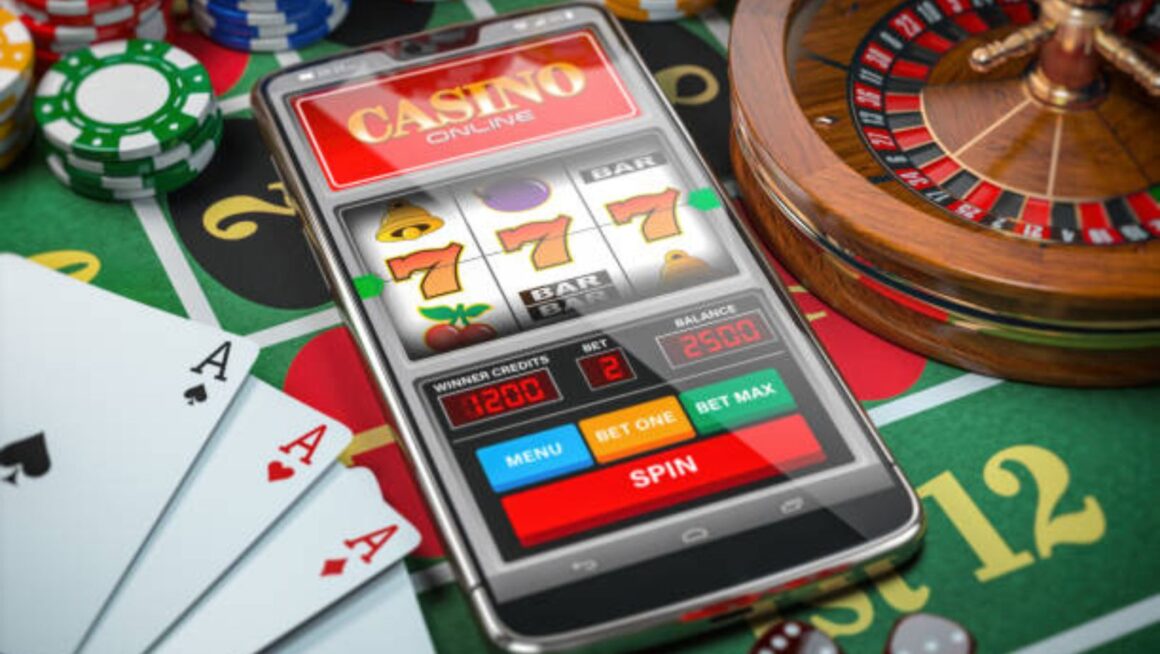Walking into a casino in 2035, the first thing that strikes you is the absence of anything resembling a cashier’s cage. No more waiting in line to exchange cash for chips, no paper tickets, no ATM machines blinking in the corner. Instead, transactions happen in an instant, seamlessly woven into the digital fabric of the space. You sit at a blackjack table, but the dealer isn’t human—well, not entirely. It’s an AI-driven hologram that reacts to every nuance of your gameplay, adjusting its responses with eerily lifelike precision.
The air hums with the subtle whir of technology, though everything feels effortless. No clunky VR headsets, no tangled wires—just a fully immersive world where digital and physical elements blur. A player across the room, thousands of miles away in reality, places a bet on the same roulette table you’re at. Another competitor joins from their couch, appearing as an avatar next to you. The casino of the future isn’t bound by geography, and yet, it retains the pulse-pounding excitement that has drawn gamblers for centuries.
At the core of this transformation are technologies that are already shaping the industry today. AI, blockchain, virtual reality, and 5G have been quietly reshaping the way players engage with gambling, pushing the industry past its traditional limits. Casinos are no longer just buildings; they are platforms, ecosystems, and, in many cases, fully digital worlds.
Artificial intelligence has quickly moved beyond its role as a basic recommendation engine. Today, it suggests movies and shopping deals, but in casinos, it predicts your next move before you even realize you’re making it. AI tracks play styles, betting habits, and even the subtle fluctuations in time spent between bets. It recognizes whether you’re a cautious strategist or a reckless high roller, adjusting the game’s feel accordingly. Platforms like betboo use this technology to create truly immersive betting experiences. This isn’t just about making suggestions—it’s about shaping an entire personalized journey.

Then, there’s the rise of VR and AR gambling. Virtual casinos used to be clunky, burdened by lag and clumsy interfaces, but with next-gen hardware and hyper-fast networks, they’ve turned into immersive destinations. Players can step into a high-stakes poker room in Monte Carlo from their living room, feeling every moment as if they were truly there. Augmented reality layers digital enhancements onto physical casino spaces, letting players track odds in real-time or project data onto a virtual dashboard only they can see. These aren’t gimmicks—they’re extensions of play that enhance engagement in ways never before possible.
Blockchain and cryptocurrency have done more than just disrupt finance—they’ve fundamentally altered how wagers are placed and winnings are distributed. Transparency has always been a pain point in gambling, with players often left wondering whether the house truly plays fair. Blockchain technology has introduced provably fair gaming, where every roll, spin, and shuffle can be publicly verified. Smart contracts handle payouts instantly, removing delays, disputes, and the bureaucratic hurdles of traditional banking systems.
None of this would be possible without the underlying infrastructure provided by 5G and cloud gaming. High-speed, low-latency networks mean that players no longer need expensive hardware to access top-tier casino games. The processing happens in the cloud, streamed directly to whatever device they prefer. A simple smartphone or tablet now holds the same power as a high-end gaming PC did just a few years ago. This accessibility has expanded the gambling audience in ways that physical casinos never could.
Meanwhile, IoT (Internet of Things) has made physical casinos smarter than ever. Facial recognition replaces membership cards, identifying players the moment they walk in. Dynamic odds shift based on real-time data, adapting to demand and play behavior. Smart tables adjust their betting limits automatically based on occupancy and time of day. Even slot machines use data analytics to offer personalized promotions, drawing players in with uncanny precision.
With all these advancements, it’s fair to ask whether traditional casinos are on borrowed time. The old-school gambling experience—crowded floors, ringing slot machines, human dealers—will never disappear entirely, but it is evolving. The hybrid model is already taking shape. Physical casinos are integrating digital elements, from app-driven loyalty programs to VR-enhanced poker rooms where players can interact with virtual overlays.
Las Vegas may always be a mecca for gambling, but it now has a formidable rival: the metaverse. Digital casinos don’t require travel, dress codes, or even physical presence. They offer limitless customization, allowing players to gamble in environments that can range from cyberpunk cityscapes to serene mountaintops. Yet, for all their convenience, they lack one crucial element—physical presence. The tactile nature of real-world gambling, the clinking of chips, and the collective energy of a winning streak is something that no technology has yet fully replicated.

Ethical concerns loom large over this transformation. The same AI that creates personalized gaming experiences can also push players deeper into gambling habits they may not have control over. Predictive analytics can be used to encourage responsible gambling, but it can just as easily be exploited to maximize player losses. Regulatory bodies are scrambling to keep pace with these developments, facing the challenge of enforcing rules on decentralized, borderless platforms.
Privacy is another battleground. Casinos now collect more data than ever—biometric scans, behavioral analytics, transaction histories—all in the name of security and personalization. The question is whether players are willing to trade privacy for convenience. The industry is walking a tightrope, balancing innovation with ethical responsibility.
For all the shifts happening, one thing hasn’t changed: casinos still want players to keep playing. The industry has always thrived on offering incentives, and now, digital platforms have taken this to new levels. Raging Bull slots is offering more extensive bonuses that overall has a better player experience, taking advantage of AI-driven promotions that adapt to individual gaming habits. Bonuses no longer follow a one-size-fits-all model—they’re dynamic, personalized, and optimized to retain engagement.
Looking ahead to 2050, the gambling landscape could go in multiple directions. A utopian vision sees AI and blockchain making gambling safer, fairer, and more accessible than ever. A darker view imagines an industry where every aspect of play is algorithmically designed to maximize losses.
Somewhere in between lies reality. The thrill of the bet, the moment of anticipation before a roulette ball lands or a card is flipped, will always be the heart of gambling. The setting may change—whether it’s a neon-lit casino floor or a virtual lounge in the metaverse—but the essence remains. The casino of the future isn’t about replacing the old; it’s about pushing the boundaries of what gambling can be. Technology doesn’t erase the past; it amplifies it, turning tradition into something entirely new.



